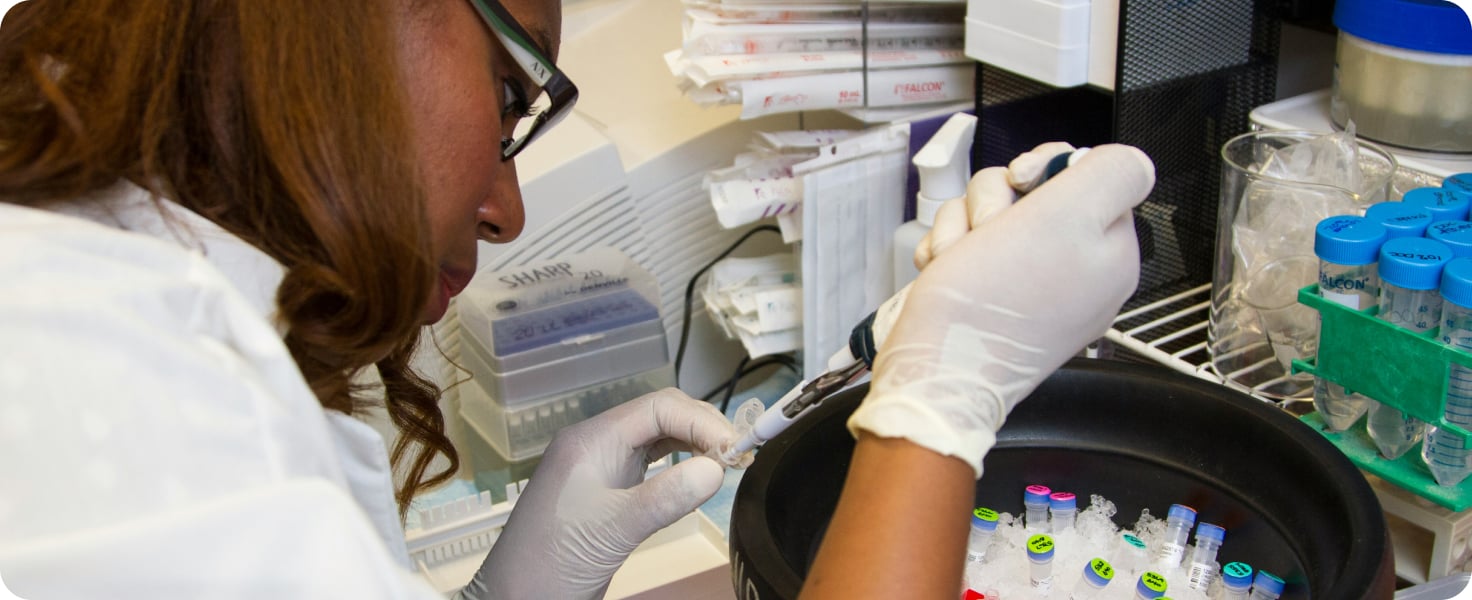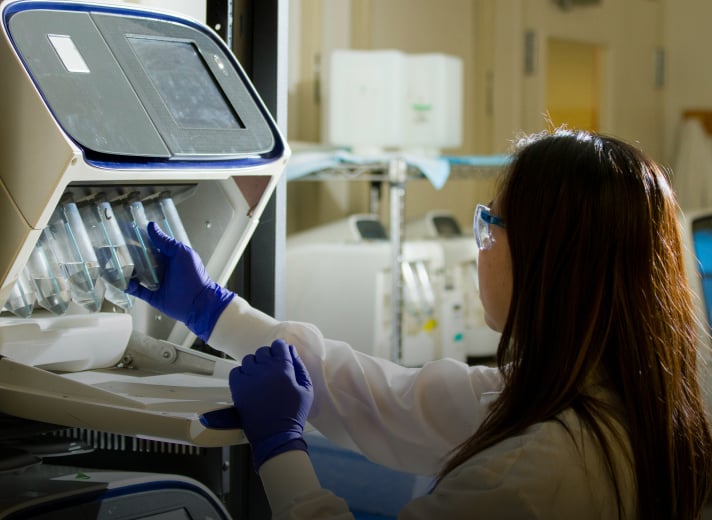
Biotechnology
Overview

As Japan has an aging population, the demand for medical care and long-term care services is expected to continue. Sapporo has a higher percentage of elderly population than other regions, so new products and services such as preventive healthcare are crucial for extending the healthy life expectancy of our citizens. Additionally, we urgently need to develop new technologies that can help to address issues such as labor shortages and improve productivity in our healthcare sectors.
Sapporo’s cool climate, rich natural environment, abundant agricultural and marine resources, and advanced urban infrastructure makes it a perfect city for research – particularly R&D in bio-related fields. Medical, pharmaceutical, and healthcare science universities – such as Hokkaido University and Sapporo Medical University – are also located in the area.
Research institutes like Hokkaido Research Organization (HRO) and the National Institute of Advanced Industrial Science and Technology (AIST) conduct advanced research on disease prevention, treatment, and drug discovery, including important fields such as regenerative medicine and the treatment of cancer and infectious diseases. Startup companies are also founded in Sapporo, leveraging the leading research conducted on the universities and colleges mentioned above.
Key Areas

Regenerative Medicine

Proton Therapy

Infectious Disease Research

Cancer Treatment and Preventive Vaccines
Key Benefits
World-class Medical Research
Hokkaido University, Sapporo Medical University and other top-class universities
Several local projects designated by the Japanese government
Hokudai Research & Business Park (on the grounds of Hokkaido University), Hokkaido Prime Biocommunity, Hokkaido University Center of Innovation (COI) Program ‘Innovative Food & Healthcare MASTER’, Global Research Center for Food & Medical Innovation (FMI).
Excellent laboratory environment to support research
Academia-government collaborative research facilities such as Hokkaido University Business Spring and Sapporo Electronics Center.
Sapporo Innovation Fund
760 million yen public-private partnership regional fund specializing in the health and medical biotechnology field, was established as the first such fund in an ordinance-designated city, and is being used to provide financial support for local startups. ’Ordinance-designated city’ is a local administrative division created by the Japanese government, referring to cities with a population over 500,000 people that have been designated as such by the Cabinet of Japan.
Sector Snapshot
No.7 in Japan
Click here for details of Hokkaido University's collection of research profiles.
Source: Times Higher Education University Ranking, Japan 2023
Over 100 Billion Yen
Source: FY2023 Survey Report on Biotech Related Companies (NOASTEC)
11 R&D Organizations
Source: Hokkaido Semiconductor and Digital Industry Revitalization Strategy (March 2024)
One of 4 Official Bio Regions in Japan
Collaborative
Projects
Regenerative medicine
Sapporo Medical University for STR01 – Using autologous bone marrow mesenchymal stem cells (STR01), Sapporo Medical University has researched and developed the world’s first regenerative medicine treatment for spinal cord injury.
Research on Infection Diseases
Hokkaido University International Research Institute for Zoonosis Control (IIZK) & Shionogi & Co. Ltd., developed Zocova, the first domestically produced Covid-19 treatment approved for use in Japan.
Nobel Prize in Chemistry for Development of Organocatalysts for Drug Synthesis
Hokkaido University Institute for Chemical Reaction Design and Discovery (WPI-ICReDD) won the Nobel Prize in Chemistry.
Cancer Treatment and Preventive Vaccines
Sapporo Medical University is involved in the development of cancer stem cell vaccine.







